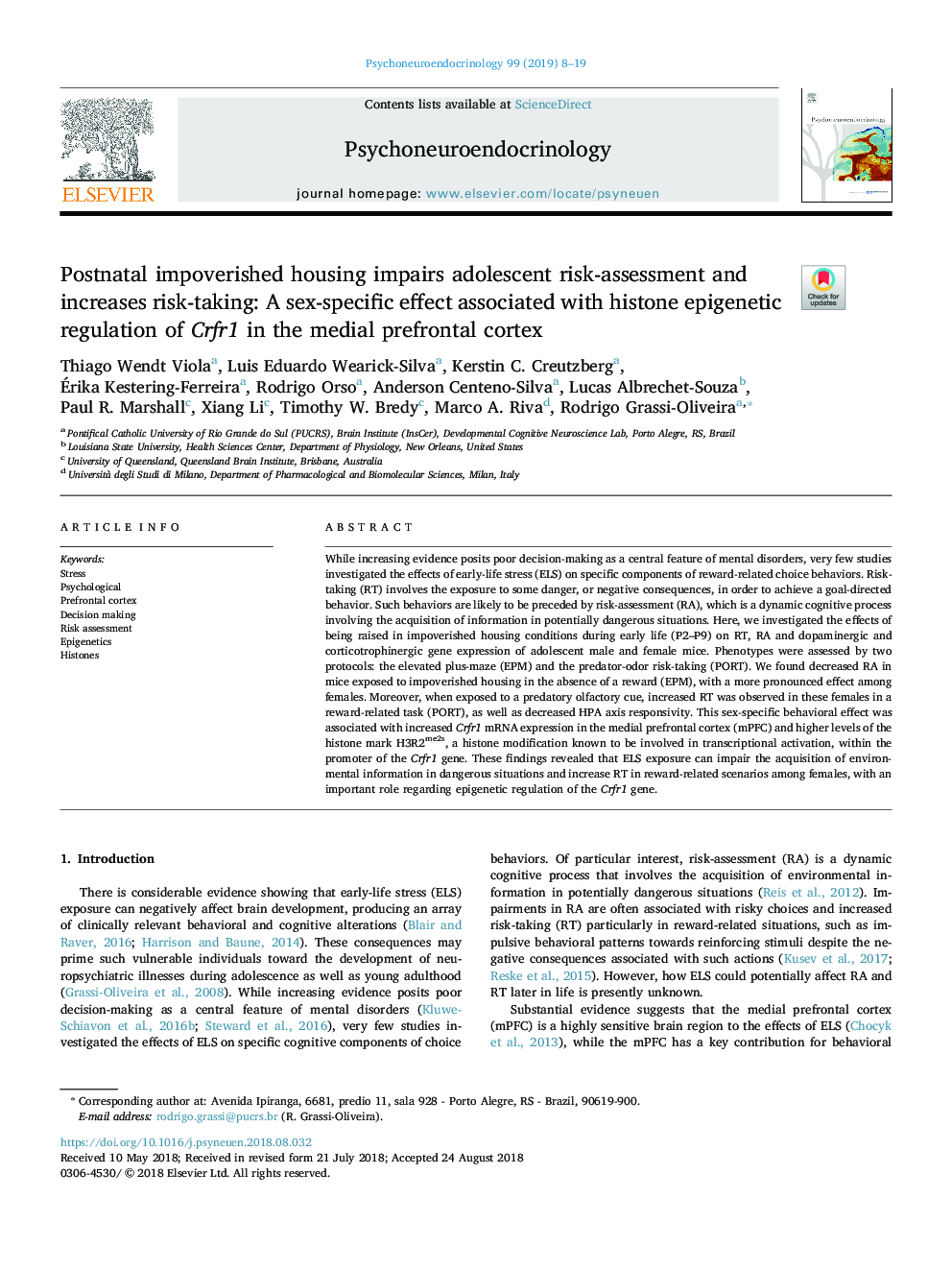| Article ID | Journal | Published Year | Pages | File Type |
|---|---|---|---|---|
| 8953513 | Psychoneuroendocrinology | 2019 | 12 Pages |
Abstract
While increasing evidence posits poor decision-making as a central feature of mental disorders, very few studies investigated the effects of early-life stress (ELS) on specific components of reward-related choice behaviors. Risk-taking (RT) involves the exposure to some danger, or negative consequences, in order to achieve a goal-directed behavior. Such behaviors are likely to be preceded by risk-assessment (RA), which is a dynamic cognitive process involving the acquisition of information in potentially dangerous situations. Here, we investigated the effects of being raised in impoverished housing conditions during early life (P2-P9) on RT, RA and dopaminergic and corticotrophinergic gene expression of adolescent male and female mice. Phenotypes were assessed by two protocols: the elevated plus-maze (EPM) and the predator-odor risk-taking (PORT). We found decreased RA in mice exposed to impoverished housing in the absence of a reward (EPM), with a more pronounced effect among females. Moreover, when exposed to a predatory olfactory cue, increased RT was observed in these females in a reward-related task (PORT), as well as decreased HPA axis responsivity. This sex-specific behavioral effect was associated with increased Crfr1 mRNA expression in the medial prefrontal cortex (mPFC) and higher levels of the histone mark H3R2me2s, a histone modification known to be involved in transcriptional activation, within the promoter of the Crfr1 gene. These findings revealed that ELS exposure can impair the acquisition of environmental information in dangerous situations and increase RT in reward-related scenarios among females, with an important role regarding epigenetic regulation of the Crfr1 gene.
Related Topics
Life Sciences
Biochemistry, Genetics and Molecular Biology
Endocrinology
Authors
Thiago Wendt Viola, Luis Eduardo Wearick-Silva, Kerstin C. Creutzberg, Ãrika Kestering-Ferreira, Rodrigo Orso, Anderson Centeno-Silva, Lucas Albrechet-Souza, Paul R. Marshall, Xiang Li, Timothy W. Bredy, Marco A. Riva, Rodrigo Grassi-Oliveira,
